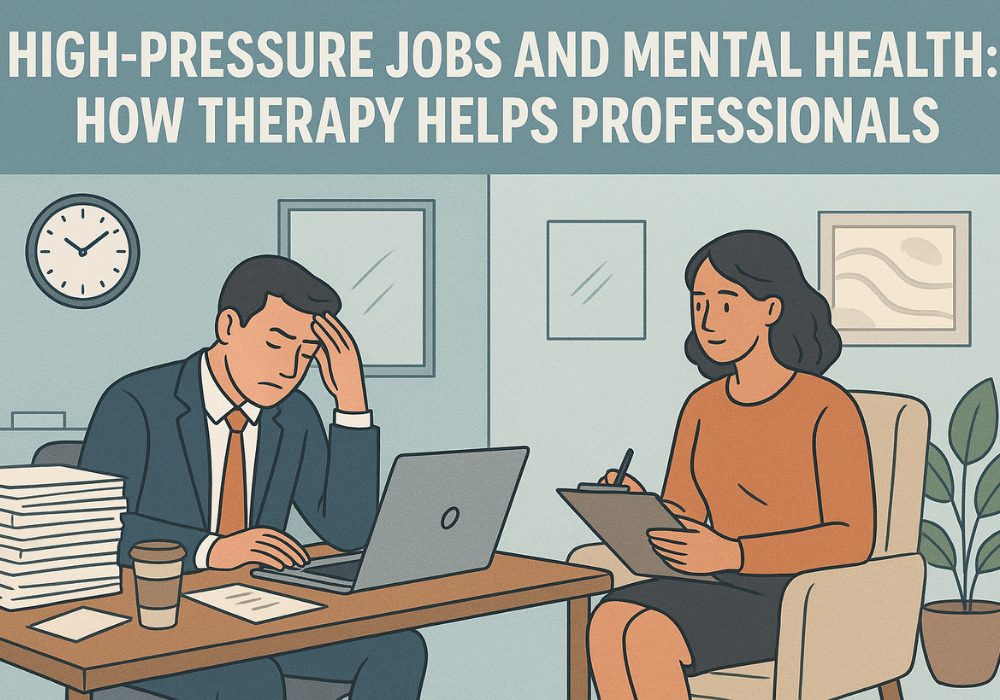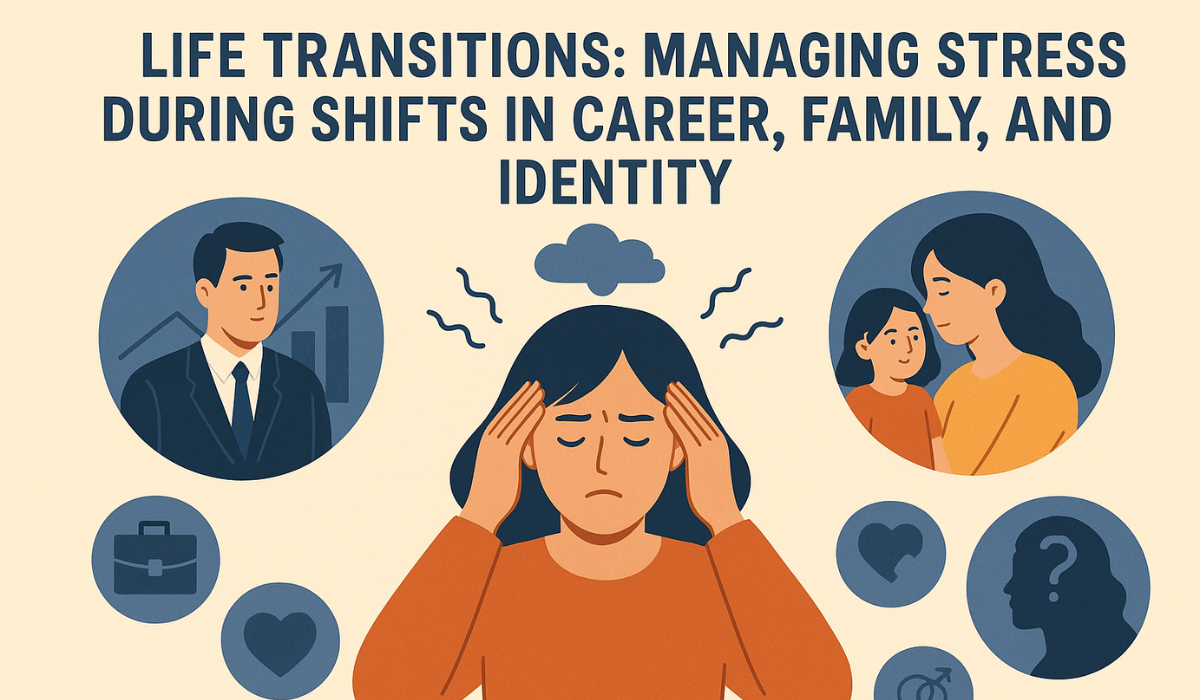Have you ever felt like your struggles aren’t fully understood by those around you? That no matter how hard you try to explain, the people you turn to just don’t get what you’re going through?
It’s a common experience, especially for those from diverse cultural backgrounds. Cross-cultural therapy is a powerful solution that’s helping people break free from feeling misunderstood, offering a way to embrace their unique story and move forward in a healthy, empowering way.
“Therapy isn’t just about talking. It’s about being heard and seen for who you truly are,” says Dr. Maya Patel, a licensed cross-cultural therapist.
What Is Cross-Cultural Therapy?
Cross-cultural therapy isn’t just another approach to therapy. It’s a way of doing therapy that acknowledges and celebrates your cultural background.
This kind of therapy understands that your experiences, shaped by your culture, can impact how you feel, how you cope, and how you interact with others.

Imagine speaking to someone who truly gets it—not just in terms of your emotions, but in the way your cultural background shapes those emotions. That’s what cross-cultural therapy offers. It’s a space where your cultural identity is part of the conversation.
Why Do We Need Cross-Cultural Therapy?
We live in a world filled with different cultures, beliefs, and traditions. Yet, sometimes, when it comes to mental health, our cultural differences aren’t always acknowledged. And this can leave us feeling lost.
“When people feel like they’re not understood, it can feel like they’re carrying a heavy weight,” explains John Alvarez, a cross-cultural therapist. “That’s why it’s so important to have therapists who not only know the theory behind mental health but also understand the influence of culture.”
Here’s why cross-cultural therapy matters:
- Cultural Sensitivity: Everyone has a different way of experiencing the world. The way we express our feelings, deal with stress, or communicate can vary based on our cultural upbringing. A cross-cultural therapist is trained to recognize these differences, ensuring they don’t make assumptions about you based on their own cultural lens.
- Language Matters: Language can be a barrier in therapy, especially for people who speak a second language or have different linguistic expressions. Cross-cultural therapists are often skilled in understanding the nuances of language and, when necessary, can help bridge the gap with interpreters.
- Stigma and Mental Health: Some cultures have strong stigmas around seeking therapy. It’s often seen as a sign of weakness or a personal failure. A cross-cultural therapist understands this and works hard to create a safe, non-judgmental space where you can explore your feelings without fear of being shamed.
- Family and Cultural Expectations: In many cultures, family plays a huge role in your life choices. The pressure to meet family expectations can be overwhelming, and that’s something a cross-cultural therapist can help navigate. They’ll understand the delicate balance of honoring your family’s wishes while also respecting your own needs and desires.
- Identity Struggles: For many, especially immigrants or children of immigrants, there’s often a clash between cultural identity and fitting into the broader society. Cross-cultural therapy helps people reconcile these two parts of their identity, so they can move forward with confidence.
The Role of a Cross-Cultural Therapist

A cross-cultural therapist isn’t just any therapist. They are someone who actively listens with an open heart and a deep understanding of the cultural factors that shape you.
“One of the most important things I do is listen,” says Dr. Patel. “I don’t just listen to the words. I listen to the cultural context behind them. That’s how real healing begins.”
Here’s what a cross-cultural therapist does for you:
- They Listen Differently: They hear more than just your words. They listen to the emotions, the cultural significance behind your experiences, and the deeper layers of your story.
- Build Trust and Safety: Trust is everything in therapy, and it’s even more crucial when cultural differences are at play. A cross-cultural therapist works to build a space where you feel understood, not judged.
- They Help You Bridge Cultural Gaps: Sometimes, there’s a disconnect between your own values and the values of the society around you. A cross-cultural therapist helps you navigate that gap, providing tools to handle the pressure and challenges that come with balancing different cultural expectations.
- Culturally Relevant Healing: The tools a cross-cultural therapist uses aren’t one-size-fits-all. They adapt their methods to suit your cultural background, which makes the therapy process feel more personalized and effective.
- Empowerment: When you work with a cross-cultural therapist, you feel empowered. You’re not just learning to cope with your issues; you’re also learning how to embrace and celebrate your cultural identity.
How Does Cross-Cultural Therapy Bring Change?
So, how does all of this actually lead to real, lasting change? The magic of cross-cultural therapy lies in how it creates a therapeutic environment that’s both healing and empowering.
- A Safe Space to Be Yourself: When you’re seen and heard for who you truly are, it makes all the difference. No more feeling like you have to hide parts of yourself. That sense of safety is the foundation for healing.
- Better Communication: Cross-cultural therapy doesn’t just help with individual healing—it can improve how you relate to others. By understanding cultural differences, you learn how to communicate more effectively with your family, friends, and colleagues.
- Integration of Cultural Identity: Therapy isn’t about forcing you to change who you are. It’s about helping you integrate your cultural identity into your everyday life. You learn to honor your heritage while also adapting to the world around you.
- Effective Stress Management: Cultural stressors—whether it’s discrimination, societal expectations, or family pressures—are real. Cross-cultural therapy teaches you strategies to handle these stressors in a way that’s aligned with your cultural values, so you feel stronger and more resilient.
- Strengthened Sense of Belonging: One of the most powerful outcomes of cross-cultural therapy is a stronger sense of belonging. You begin to feel more at peace with yourself and your place in the world, regardless of where you come from.
Real-Life Impact
Many people have seen life-changing results after participating in cross-cultural therapy. Take Maria, for instance. She moved from Mexico to the U.S. and struggled with identity issues. “I didn’t know where I belonged,” Maria says. “I felt torn between my family’s traditional values and the pressures of fitting into American society. My therapist helped me understand both sides and find balance. Now, I feel at peace with my identity.”
Or consider James, who grew up in a family that saw therapy as a sign of weakness. “I was scared to talk to a therapist at first,” James admits. “But my cross-cultural therapist made me feel safe and understood. It changed my life.”
Conclusion
If you’ve ever felt like your unique experiences weren’t truly understood, cross-cultural therapy could be the key to feeling heard, supported, and empowered. It’s more than just a method of therapy—it’s a way to honor your culture, celebrate your identity, and heal in a space that respects your journey. Whether you’re navigating family expectations, identity struggles, or simply looking for someone who understands, a cross-cultural therapist can help you find the path to real change.
As a licensed therapist and coach who has lived abroad for two decades, I bring a truly global, cross-cultural perspective to emotional wellness—offering insight, understanding, and strategies that resonate with individuals navigating change, identity, and the pursuit of purposeful living. I have worked with clients from all over the world,
After living in Costa Rica for over 20 years, I’ve worked with clients from all over the world—helping them navigate the emotional challenges of high-pressure lives, cultural transitions, and identity shifts that come with living or working abroad.
I blend real-life experience with clinical expertise and neuroscience-backed strategies to help you stop overthinking, set boundaries that stick, and finally feel grounded in who you are.
If you’re ready to stop running on empty and start living with energy, intention, and emotional alignment—this is your moment. You don’t have to do it alone.
Train your brain, transform your life.
➡️ Book your private session or inquire about coaching packages today.
www.crystalperdue.com
Who should consider Cross-Cultural Therapy?
Anyone who feels that their cultural identity is not being fully understood in a traditional therapeutic setting should consider cross-cultural therapy. It is especially beneficial for:
- Immigrants or children of immigrants.
- People from diverse cultural backgrounds.
- Individuals experiencing cultural identity conflicts or navigating cultural expectations.
- Anyone who feels disconnected from mainstream society or misunderstood.
What can I expect during a Cross-Cultural Therapy session?
During a cross-cultural therapy session, you can expect a warm, open, and safe environment. Your cross-cultural therapist will ask questions about your cultural background, values, and beliefs, integrating this context into your therapy. They’ll listen with a deeper understanding of how your culture influences your feelings, behaviors, and coping mechanisms.
How can a Cross-Cultural Therapist help me?
A cross-cultural therapist helps you by:
- Listening to your concerns with cultural awareness.
- Helping you navigate family expectations, cultural pressures, and identity struggles.
- Providing tailored coping strategies that align with your cultural values.
- Empowering you to embrace both your cultural identity and your personal growth.
Is Cross-Cultural Therapy helpful for people struggling with cultural stigma around mental health?
Yes, cross-cultural therapy is especially helpful for those dealing with cultural stigma around mental health. Many cultures view seeking therapy as taboo or a sign of weakness. A cross-cultural therapist creates a non-judgmental, safe space for you to discuss mental health without fear of shame or misunderstanding.






